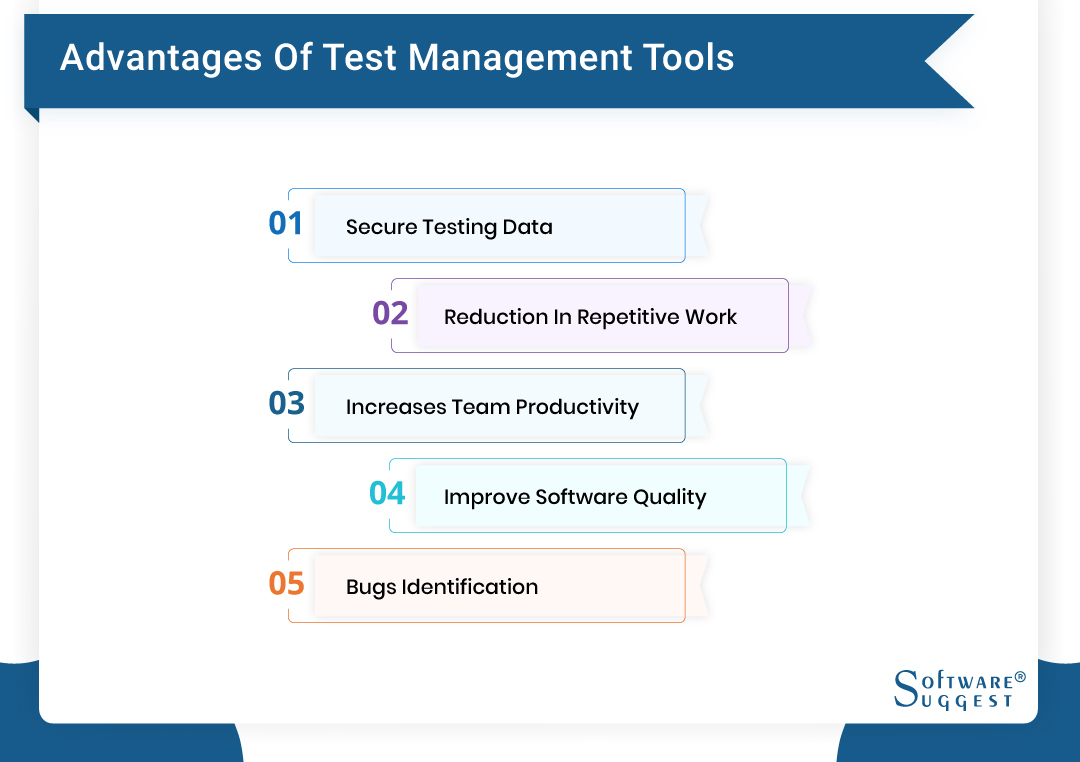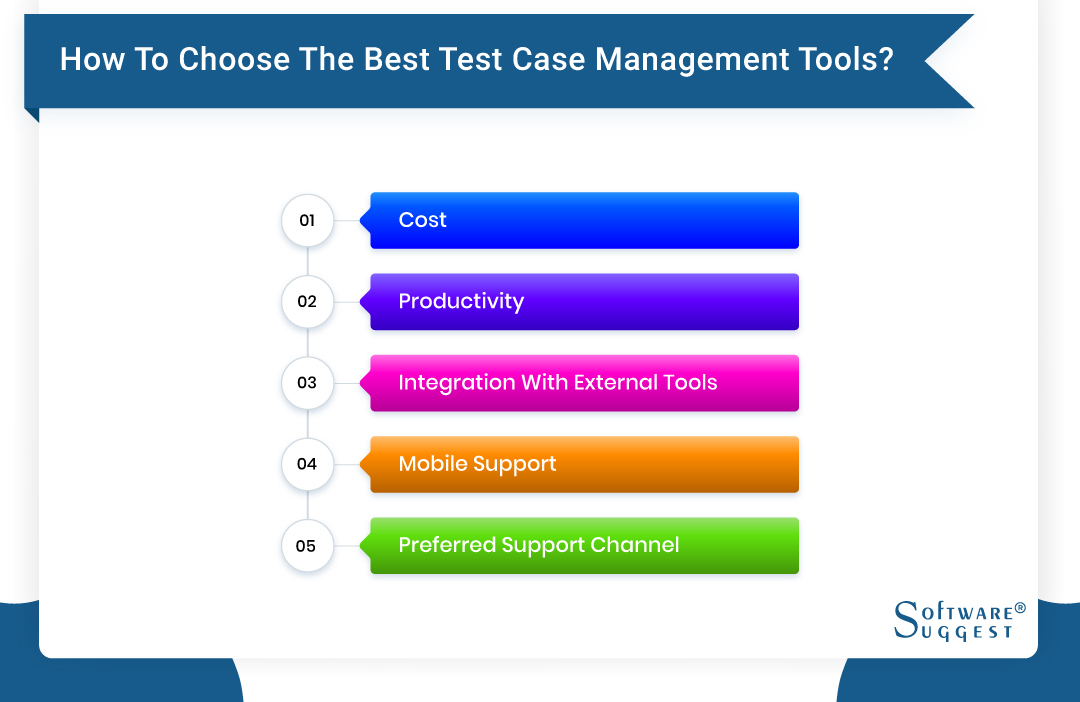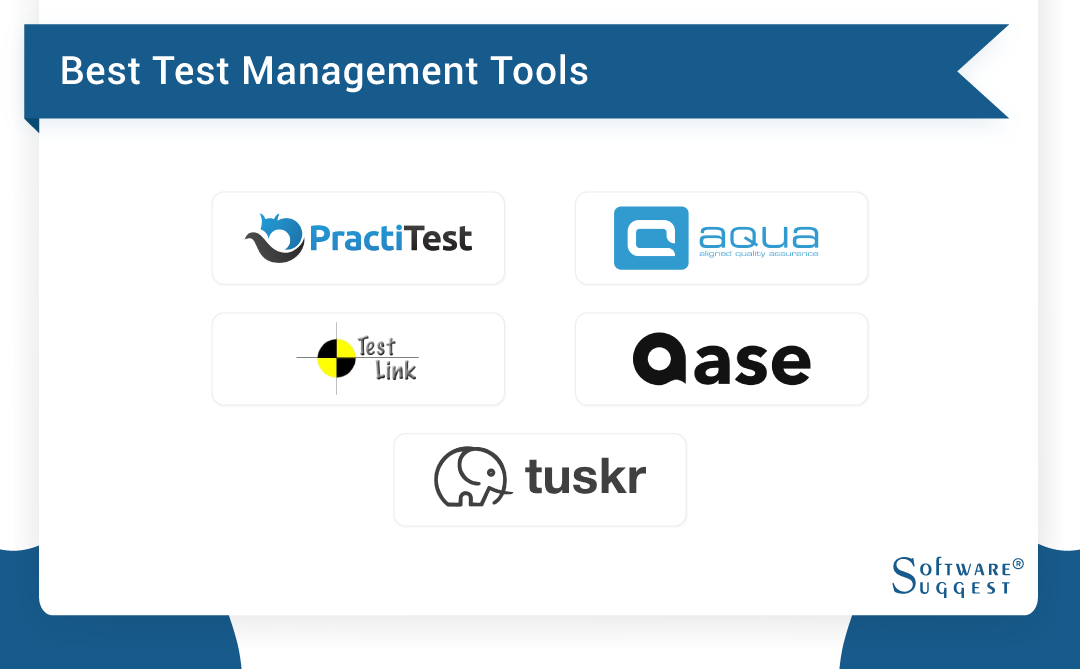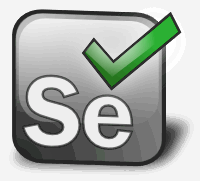Best Test Management Tools in India for 2023
Best test management tools exist ExamOnline, Tuskr, QATTS, Testiny, and Test invite. Such a tools ensure everyone from business analysts to developers, testers, and QA managers has one view of the progress.



Connect With Your Personal Advisor
List of 20 Best Test Management Tools
Emergents | 2023
Test and QA Management Solution
PractiTest is a complete test management solution that lets you organize, run & visualize all your QA efforts: manual, exploratory and automation. PractiTest is suitable for any testing methodology from traditional to DevOps and more. Learn more about PractiTest
Starting Price: Starting Price: $39 User/Month
Emergents | 2023
Online Exam Software for Recruiters and Trainers
Test Invite a safe exam software for recruiters and trainers with a high level of security framework. The computer and browser of the candidate will be locked during examination so that the candidate cannot open new tabs, apps, windows etc during the exam. Read Testinvite Reviews
Starting Price: Starting Price: $100 Per 250 Credits
Recent Review
"Recommend it to all" - Benedek Havass
Tuskr is intuitive, powerful & affordable cloud-based test management software. Which can manage to run test cases and can integrate with your bugs. It is powerful and it's pricing is also low, get a 30-day free trial. Read Tuskr Reviews
Starting Price: Available on Request
Recent Review
"Super easy to use with great features" - Amit Kulkarni
| Pros | Cons |
|---|---|
|
Their UI, features and price! |
Nothing that I can think of. |
|
Tuskr is intuitive. All of us were able to quickly start using it without any assistance. It also has all the features that we wanted. |
No single sign on. |
Category Champions | 2023
AI based Remote Proctored Online Exam Software
ExamOnline is an AI based remote proctoring software which is extremely trusted and is also been used by the best companies in India. It is the safest software which is extremely versatile and helps to conduct cheating free exams. Read ExamOnline Reviews
Starting Price: Available on Request
Recent Review
"Great test-delivery platform" - Utkarsh
| Pros | Cons |
|---|---|
|
AI monitoring and secure functions. |
The admin interface could be more user-friendly. |
|
The Ai of software is amazing.The resort system is very impressive. |
It should be also available for IOS user. |
Category Champions | 2023
QATTS is a revolutionary offering, custom-created to address diverse test automation challenges. QATTS enables Enterprises with- 5x faster automation, Complete control, Hassle-free automation. Read QATTS Reviews
Starting Price: Starting Price: $250 Per Month
Recent Review
"Ideal tool for automation" - Barkha Mishra
| Pros | Cons |
|---|---|
|
Dependable,Easy to use,Intuitive UI |
I am happy with this tool. |
|
Ideal tool for automation,Simplified testingUser friendly |
We never faced any issues |
Category Champions | 2023
Selenium is a latest automation testing tools used for any size of companies. It composed of several components which make the web automation testing process simple, fast, reliable and easy. Software testing tools work well on Windows, Linux, and macOS platforms. Read Selenium Automation Tools Reviews
Starting Price: Available on Request
Recent Review
"Great Automation tool" - Amarveer
| Pros | Cons |
|---|---|
|
Automation and Framework |
Interface and should have frequent updates |
|
Opensource and free to use. Supports almost every programming language browsers and operating systems. |
Little bit difficult for those who dont have knolwedge in programing language. |
Category Champions | 2023
Appium can work with major operating platforms and can write tests with your favorite tools. This free & open-source test management software can automate any mobile app and test framework giving you detailed access to DBS directly from the test code. Read Appium Reviews
Starting Price: Available on Request
Modern, easy-to-use test management software. Manage Test Cases, assemble and execute Test Runs, capture and discuss results, view overall status in dashboard, track issues within Jira. Read Testiny Reviews
Starting Price: Available on Request
Recent Review
"Mad for manual testing in small teams, does that job well" - Vital Salautsou
| Pros | Cons |
|---|---|
|
It is a software for manual testing as most of those tools out there. But as modern SPA it is extremely fast and responsive. They are quite at the start, but most times I do not need more features, and those features that are in are rounded and well thought-out. All in all, its for free as long as its in Beta, so can't lose much. |
The dashboard could have some more possibilities, searching in many testcases is difficult as lacking a fulltext search so far. |
|
It is a software for manual testing as most of those tools out there. But as modern SPA it is extremely fast and responsive. They are quite at the start, but most times I do not need more features, and those features that are in are rounded and well thought-out. All in all, its for free as long as its in Beta, so can't lose much. |
The dashboard could have some more possibilities, searching in many testcases is difficult as lacking a fulltext search so far. |
Contenders | 2023
Conduct HTTP, HTTPS, and various other web prototype testing to get an HTML report and choose several load statistics by using Apache JMeter. This free & open-source test management software comes with complete flexibility and 100% Java-based functioning. Read Apache JMeter Reviews
Starting Price: Available on Request
Test Evolve, the next-generation testing solution features our leading automation test engine and studio application and has been built to integrate with the specialist testing and audit tools you trust. Test Evolve your complete Agile Test Automation solution. Read Test Evolve Reviews
Starting Price: Available on Request
Recent Review
"Feature-packed - Easy to use and setup" - Natalie Jones
| Pros | Cons |
|---|---|
|
The Halo feature they offer is particularly useful as it lets us check out test results in real-time, which has helped us cut down on feedback loops and improve our testing process.Aside from that, it has an unbelievable selection of features that are continuously updated to provide you with an accurate testing experience. |
Aside from a few minor bugs that were cleared on the last update, I think the price can be a little steep for small teams, but it's well worth it as you have everything you need in one super tool. |
Contenders | 2023
Klaros-Testmanagement is a comprehensive and user-friendly software for managing, executing and evaluating test cases and all related data generated during the test process. Klaros can be configured in a multitude of ways and offers interfaces for seamless integration. Learn more about Klaros
Starting Price: Starting Price: $1400 Per Month
Emergents | 2023
Matrix Requirements Medical is a fully featured Quality Management & Control Software designed to serve Enterprises, Startups. Matrix Requirements Medical provides end-to-end solutions designed for Web App. This online Quality Management & Control system offers Training Management, Document Control, Requirements Review, Change Management, User Level Management at one place. Learn more about Matrix Requirements
Starting Price: Available on Request
High Performer | 2023
TestMonitor is a fully featured Quality Management & Control Software designed to serve Enterprises, Agencies. TestMonitor provides end-to-end solutions designed for Web App. This online Quality Management & Control system offers Defect Tracking at one place. Learn more about TestMonitor
Starting Price: Available on Request
Emergents | 2023
A Superb, Adaptive and Analytical Online Test Soft
A superb, adaptive and analytical online test software with solution for different and varied sectors like – Education, Training Institutes, Recruitment Agencies, Corporate. Learn more about Global Online Test
Starting Price: Available on Request
High Performer | 2023
Specialized in agile testing and reporting, Tarantula is a top-notch free & open-source test management software that helps you create smart tags and case version history easily. It comes with modern features and operates under GNU GPLv3 licenses. Learn more about Testia Tarantula
Starting Price: Available on Request
Emergents | 2023
Integrate big reporting with test results and make your testing more powerful with Testopia. This free & open-source test management software supports XML export and import gives you various clone options and can do numerous bug fixes in one go. Learn more about Testopia
Starting Price: Available on Request
Contenders | 2023
The best tool to have for automation testing
Conducting automation testing was never as easy as it is with TestLink. This free & open-source test management software can integrate easily with other tools, sends bugs notifications, has Mozilla compatible browser and is easily available on GitHub. Learn more about TestLink
Starting Price: Available on Request
Category Champions | 2023
Instant report delivery in XL and PDF format
qaManager gives you consultation views for the restricted user and ensure 100% data security. Despite being free, this free & open-source test management software can track code reviews, manage track allocation and gives detailed reporting on the testing cycle. Learn more about qaManager
Starting Price: Available on Request
Emergents | 2023
A GPL 2 licensed testing software at your service
Worried about testing process compliance? Then use Kiwi TCMS can conduct testing easily. This free & open-source test management software offers full access to all your external APIs via JSON and helps you do easy data import/export for reliable testing. Learn more about Kiwi TCMS
Starting Price: Available on Request
Emergents | 2023
FitNesse is a fully integrated free & open-source test management software that comes with a wiki and acceptance testing framework. It’s a collaboration tool as well that allows you to collaborate with any of the external APIs to conduct detailed automation testing. Learn more about FitNesse
Starting Price: Available on Request
Until 31st Mar 2023


Why do You Need Test Management Tools?
Test management tools allow businesses to find and manage bugs, track tests, and collaborate on projects, resulting in more efficient software development.
In addition to analytics features, test management tools allow businesses to determine how successful each test has been. The following reasons define the need for test management tools:
1. Testing activities are complex, which makes efficient and scalable test management software a must-have for organizations.
2. Test case tools facilitate the coordination of various testing activities and ensure that the overall testing process runs smoothly.
3. Test case tools help instant access to data analysis, collaboration tools, and effective communication among multiple project teams to support the vision of rationalizing and reforming the testing process.
4. Many tools include requirements management capabilities to match test case design with requirements.
5. The testing process simplifies tracking defects and project tasks.

The advantages of test case management tools are as follows:
1. Secure Testing Data
With an automated test management app in place, there are no concerns about whether the processed data is secure. Furthermore, with the ability to manage users and role-based access in sync, only those with access cards will be able to view the data, which is safe in the cloud.
Data security is paramount in these days of data scams, where test management tools utilize the right tech elements to secure data.
2. Reduction In Repetitive Work
It can be very taxing for one employee to repeat work. Repetitive work usually occurs when they are unaware that another employee is working on resolving the issue. A test management tool can help reduce this problem.
For instance, when a bug is detected, it is automatically diverted to the tester, developer, and anyone else involved keeping them updated until the issue resolves.
3. Increases Team Productivity
In addition to contributing to increased output, sales, and team morale, productivity boosts productivity when the whole team works together rather than just reacting to tasks and issues.
Test management tools allow your team to focus on goals and improve productivity by focusing on automation rather than human resources.
4. Improve Software Quality
Software development companies work toward the same goal: creating and providing software that fully meets the tastes and preferences of their customers.
Best test case management tools are vital in supporting testers in the testing process. They tell us exactly where the bug is, how certain features work, and where an extra bit of finesse is required.
5. Bugs Identification
There may be distracting and destructive bugs, no matter how much time is spent on testing and developing, but they can still emerge during the development process. A test management tool simplifies the process of identifying bugs.
Bug identification can be done quickly by testers without requiring them to spend extra time on the process so that developers can fix the problem within a shorter timeframe.

Here are some parameters to evaluate when selecting a test management system:
1. Cost
A large organization may have the budget to consider a commercial tool that can be easy to use and maintain as it is easy to use and maintain. However, in a small organization, free tools may be a better option depending on the budget.
In addition, you need to decide what kind of licensing cost you will be willing to pay based on the timeframe for which you will use the tool. Commercial tools also come with customized licenses that allow you to choose your features and duration of usage based on your budget.
2. Productivity
To improve productivity, the test management software chosen should cover the following areas:
- The Granularity of Test Information: As the testing process progresses, the tool should be able to provide detailed and helpful information. For example, it should be possible to find out exactly where the test failed by looking at the test report generated by the tool, so you can trace and replicate it more easily. The tool should also be able to document testing strategies, maintain test case versions, log defects, link user stories, plan test execution, and upload videos and images.
- Release Management Tracking: The tool must be capable of tracking and updating the list of application modules that are tested and released. Additionally, it should be capable of providing all stakeholders with a repository representing a single version of the truth so that requirements do not conflict.
- Support for Agile: Most projects adopt the agile methodology, so the tool you choose should also support agile, including features like user story creation, sprints, scrum, velocity charts, reports, etc.
3. Integration with External Tools
The tool should support continuous integration and easily integrate with automation testing tools and bug tracking tools to make the overall testing process faster and more accessible.
4. Mobile Support
A fully-featured version of the tool for mobile devices would be instrumental. In this way, the team can stay in sync regardless of location. It also helps in 24*7 monitoring.
5. Preferred Support Channel
Ensure that the tool you choose provides good support for live chat, phone calls, raising tickets, help desk, knowledge base, and FAQs.
Test Management Tools that include everything necessary to manage the test procedure can eliminate the problem of introducing separate applications crucial to the process.
The tests could be executed with minimal programming knowledge, considering simple installation and observation across multiple project groups.
When installed, the UI is immediately accessible to groups, allowing them to begin running and recording test cases as soon as possible.
QA teams can maximize the efficiency and productivity of their testing efforts with the help of test case management tools that provide comprehensive test case management and real-time insights into the testing process.
It also provides complete visibility into the testing process. There are many types of test case management tools. However, below are ten of the most prevalent ones:
1. Manual Testing Tools
2. Visual Testing Tools
3. Automation Testing Tools
4. Functional Testing Tools
5. GUI Testing Tools
6. Penetration Testing Tools
7. Performance Testing Tools
8. SOA Testing Tools
9. Accessibility Testing Tools
10. Regression Testing Tools
The importance of test management tools cannot be overstated. QA teams have delivered high-quality products with limited resources, and time is an essential factor most critical one. These tools have proved to be a necessary part of the QA system, from test scheduling to test tracking and reporting.
With time, these tools are evolving, and one of the significant factors in this evolution is AI, which has revolutionized all industries.
However, in test management, AI has not been fully utilized to its full potential due to its robust algorithms and self-learning capabilities. Thereby minimizing human involvement in critical tasks while also making tedious and time-consuming tasks more efficient.
When it comes to the market, quality assurance teams must pace-up testing while minimizing risks and delivering high-quality products, which is why companies are adopting a shift-left mentality.
Enterprises are starting to implement integration and testing earlier in their development cycle, which allows IT teams to address issues early and find a solution.
The test management industry is moving to the cloud. Cloud-based tools provide convenience, making them accessible anywhere, anytime. While server-based tools are still around, don't expect to see many of them this year.
With the introduction of mobile apps from devices such as Kualitee, Zephyr, and JIRA, accessibility has been made possible. While you're away, testing won't stop since these mobile apps help you execute and manage tests on the go, improving testing productivity.
When evaluating which test management tools to consider, you need to narrow down the essential features your test management system should have to meet your project requirements, understand which platforms the test management software should support, and plan for future implementation.
The cost of test management tools typically ranges from $20.00- $30.00 per month, with rates increasing as features increase. Most propose a free trial, so you can test a tool before making a purchase decision.

Test management solutions allow you to capture test requirements, design test cases, generate test execution reports, and manage resources. Software quality oversights can result in financial loss, liability exposure, or company reputation damage.
A quality test management tool can help prevent bugs and defects from entering production. Below is a handpicked list of top test management tools so you can compare and evaluate them before selecting the best one for your company:
1. PractiTest
2. Aqua ALM
3. TestLink
4. Qase
5. Tuskr
6. TestMonitor
7. FitNesse
8. QATTS
9. Testiny
10. Klaros
1. PractiTest
PractiTest is a SaaS test management solution that centralizes all of your quality assurance work, processes, teams, and tools into one platform, bridging silos, unifying communication, and enabling a single source of truth throughout your organization.
As a result of customizable reports, real-time dashboards, and dynamic filters, PractiTest provides you with end-to-end visibility, which will let you make informed data-driven decisions throughout the testing process.
In addition, PractiTest enables you to align your testing operation with business goals and deliver better products faster by reusing testing elements to eliminate repetitive tasks. Finally, planning your team's work using AI insights allows your team to concentrate on what's important.
2. aqua ALM
Aqua ALM helps you choose suitable test cases for automation, connects the right tools for the job, and creates an effortless workflow. Aqua is a very balanced test automation tool. In addition to insights into test automation tools, you get a complete overview of manual and automated tests & come with a 30-day free trial.
Aqua deploys the right script to the right system, handles test data/ test suites, and gets all the results so that QA Engineers can focus on more exciting work.
3. TestLink
Test-link is the most prevalent open-source web-based free test management tool. Test-Link synchronizes requirements and test specifications, allowing users to create test projects and document test cases.
In addition, Admin users can manage test cases assignment tasks, while users can create accounts for multiple users and assign different user roles.
The tool supports both automated and manual test execution and testers can quickly generate Test Plans and Test Reports with this tool, as it supports various formats, such as Excel, MS Word, and HTML. In addition, TestLink supports integration with several popular defect tracking systems, such as JIRA, MANTIS, BUGZILLA, and TRAC.
4. Qase
Qase is an online test management tool that improves software testing activities. With Qase, you organize cases, define test severity, and reduce composition time, thus reducing both management and execution times. It is a cloud management tool for both developers and quality assurance teams.
QASE allows you to work efficiently in a team or individually. It combines both automated and manual testing techniques and enables you to integrate your tests.5. Tuskr
Tuskr lets you manage test cases, conduct test runs, and integrate with your bug tracking and time tracking tools. In addition to optimizing testing workload before testing begins, Tuskr lets you track the time spent on testing versus the amount of time spent, allowing you to maximize your resources and increase accountability.
Tuskr has some significant functionality like WYSIWYG rich-text editing, copying and pasting images in steps, and custom fields. Moreover, with its unbeatable pricing and generous free trial period, Tuskr is both powerful and aesthetically pleasing. You can use the test management software for free, but only up to five users.
Related Articles:
FAQs of Test Management Tools
1. The Test Analysis Phase
2. Test Planning & Preparation Phase
3. The Test Execution Phase
4. Test Closure Phase




.png)
.jpg)















